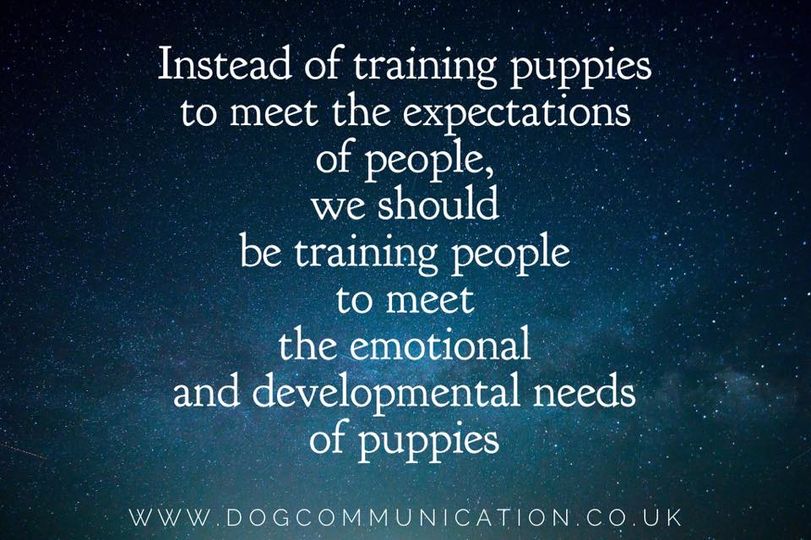I love this quote from Dog Communication who, like us, work with reactive, anxious, aggressive and nervous dogs. Never has this been more true that with all the puppies that have been acquired during lockdown !
We are receiving lots of enquiries from people about “problem” behaviours which are actually completely normal dog behaviours except that they are occurring in situations which are causing problems for the humans involved (and often, putting the dog at risk, too). Almost always, the problems could have been avoided entirely with good knowledge of proper socialisation and absolutely always, they can be avoided with temporary management strategies to avoid the problem situation occurring whilst better choices are taught.
Good socialisation requires effort on the part of the humans who have chosen to bring a puppy into their lives – effort to learn what “good socialisation” means (it isn’t, as is popularly believed, a numbers game of introducing a puppy to X of this and Y of that) and effort to give a puppy repeated positive experiences of all the things that we expect out puppies to cope with in out busy human lives.
It goes back even further than this in reality. If a puppy has a mother who is stressed; if a puppy is born into a poor environment unable to see, hear, smell and feel all the things that would be expected in a family home; if mum and puppies are poorly fed; if a puppy doesn’t meet a range of people and new experiences in the very early weeks of life then the puppy will be poorly prepared for future learning about what is safe and what isn’t. The ”default setting” is to assume that things aren’t safe, which makes total sense if you want to survive, and physiologically, this results in the production of lots of internal chemical messengers which prime the body to fight, flee or (and these are less commonly recognised as potentially worrying signs), freeze or fiddle/flirt/faff around. As anyone who has experienced a stressful time in their lives will know only too well, these chemical messengers make you feel horrible at best and seriously ill at worst. This happens to dogs, too. They have the same biochemistry.
Breeders have a huge responsibility for giving puppies a great start – by choosing good stock (physically and temperamentally sound parents, testing for any problems know to exist in a particular breed and not breeding from those affected), by ensuring that mum has a relaxed and calm environment during pregnancy and when she’s rearing her puppies and by making sure that puppies experience as many things they will encounter in their new homes in the safety of a familiar environment with their mum and litter mates for support. Puppy Culture breeders excel at this.
Puppies shouldn’t. therefore, be cheap. A good breeder will have invested huge amounts of time (and emotion) into rearing healthy, happy litters. You should expect to be absolutely interrogated by a breeder who is breeding for genuine reasons (not purely to make money) and should feel honoured to be allowed to take one of their precious puppies. You should be willing to commit to learning yourself, and to teaching your puppy for at the very least, the first year of life (and truly, throughout the dog’s whole life, if you want a healthy, happy relationship).
Much as we enjoy working with people to help dogs who are struggling, we’d very much rather work with people ideally before they even HAVE a puppy to ensure that the puppy they choose matches their wishes, and that they have the knowledge and skills to support that puppy when they leave the safety of their home and family. That way, although there can be no cast irony guarantee that a puppy will be “problem free” (which will be understood differently by every individual!), the puppy will be understood, and the best effort will be made to meet the puppy’s needs and any difficulties experienced will be understood from the puppy’s point of view.
Knowledge is power, and getting a puppy is entering into a long term relationship. It shouldn’t be a disposable impulse purchase. Tragically, we only have to look at any rescue centre to realise that there have been all too many impulse purchases in recent years. There are amazing people who are taking these emotionally damaged dogs into their lives and giving them a fresh start, and this is the situation for many of our lovely clients. Thank you to each and every one of you for what you’re doing for your dogs, they are very lucky to have you indeed.

